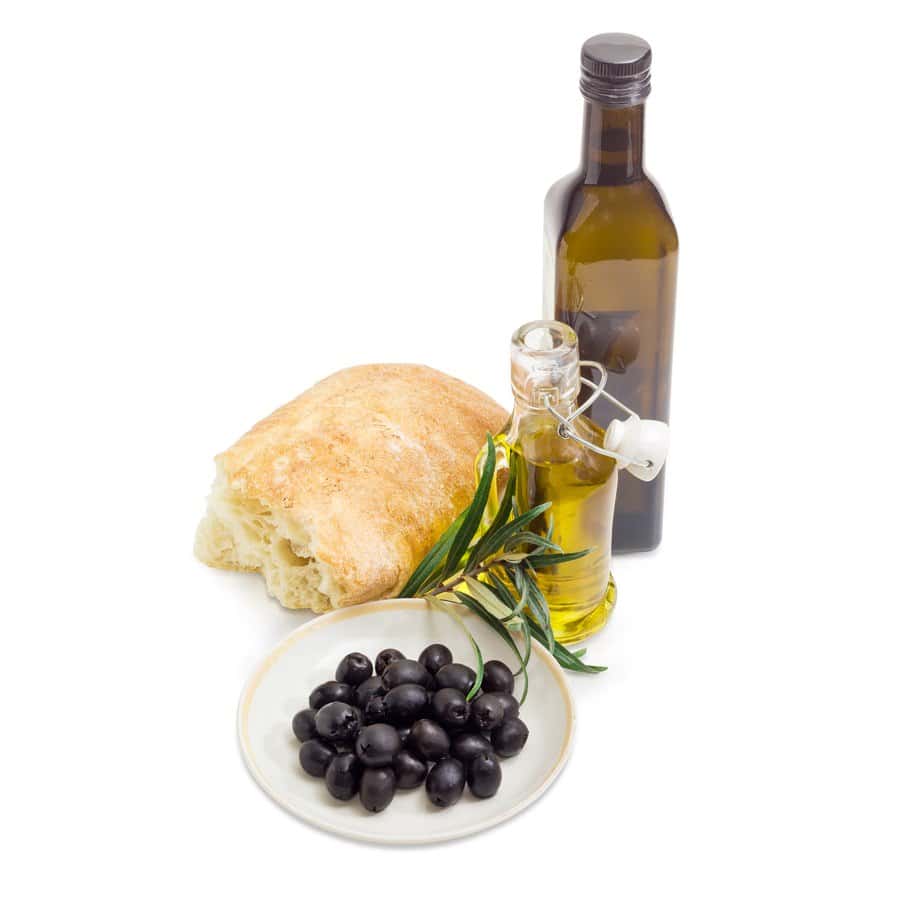
Extra-virgin olive oil has a stellar reputation, not only among foodies but among scientists and cardiologists as well. People who consume this oil as part of their regular diet appear to be less susceptible to atherosclerosis and heart disease (Nocella et al, Endocrine, Metabolic & Immune Disorders Drug Targets, 2018). Researchers have hypothesized that extra-virgin olive oil, which is rich in polyphenols, is responsible for many of the benefits of the Mediterranean diet. One large study showed that including this oil in a Mediterranean diet can prevent heart disease (Estruch et al, New England Journal of Medicine, June 21, 2018). In addition, people with diabetes have smaller increases in blood sugar after eating if their meal includes olive oil (Bozzetto et al, Clinical Nutrition, Dec. 4, 2018).
How Should You Store Extra-Virgin Olive Oil?
Q. I love olive oil but have been intimidated about using it. Heating it supposedly breaks down the olive oil and makes it bad for you. In fact, warnings about using rancid oils due to improper storage seem to be popping up all over these days. What can you tell me about the best way to store olive oil? I really want to maintain that robust olive flavor and the health benefits.
A. Some of the health benefits of olive oil are likely due to the plant compounds (polyphenols). In addition, the monounsaturated fatty acid (oleic acid) in olive oil lowers inflammation (Yubero-Serrano et al, European Journal of Clinical Nutrition, Nov. 28, 2018). Research has shown that the fats in refined olive oil deteriorate less at temperatures used for pan frying than those in corn, soybean or sunflower oils (Zribi et al, Journal of Agricultural and Food Chemistry, Sep. 29, 2014).
Spanish researchers found that storing high-flavor extra-virgin olive oil in plastic under light accelerates the breakdown of the phenolic compounds that give it the taste you treasure (de la Torre-Robles et al, Journal of the American Oil Chemists Society, Feb. 6, 2019). To maintain the best quality, store extra-virgin olive oil in dark glass containers in a dark cupboard and use it up in less than a year.
Extra-Virgin Olive Oil as a Foundation of the Mediterranean Diet:
Scientists know the Mediterranean diet is beneficial but they don’t know not exactly why it works. Consequently, they analyzed data from a randomized trial for an explanation of why olive oil is so protective.
The PREDIMED Study:
The PREDIMED trial had three groups of volunteers. One ate a traditional Mediterranean diet that was supplemented with a liter of extra-virgin olive oil a week. Another group ate a similar diet supplemented with an ounce of almonds, hazelnuts and walnuts daily. The third group ate a prudent low-fat diet. While the low-fat diet lowered LDL and total cholesterol, both Mediterranean diet groups had significantly fewer cardiovascular events. These initial results were published in The New England Journal of Medicine, June 21, 2018.
The Benefits of Olive Oil:
Subsequently, scientists examined blood tests and laboratory findings from those volunteers and discovered how olive oil worked its magic (Hernaez et al, Circulation, Feb. 13, 2017). The participants who ate the olive-oil enriched diet had HDL that worked better. It was more effective at removing LDL cholesterol and preventing its oxidation. Their HDL also helped blood vessels relax, an action that lowers blood pressure.
The investigators conclude that a traditional Mediterranean diet rich in olive oil improves HDL’s ability to protect the heart and blood vessels.
Learn More:
For guidance on how to follow a Mediterranean-style diet, you might enjoy our book, The People’s Pharmacy Quick & Handy Home Remedies. It includes details on the DASH diet, the Mediterranean diet, and a low-carb diet. A number of visitors are concerned about reports that low-quality oils are being sold as pricier extra-virgin olive oil. To find out which brands are trustworthy, we recommend checking ConsumerLab.com.

